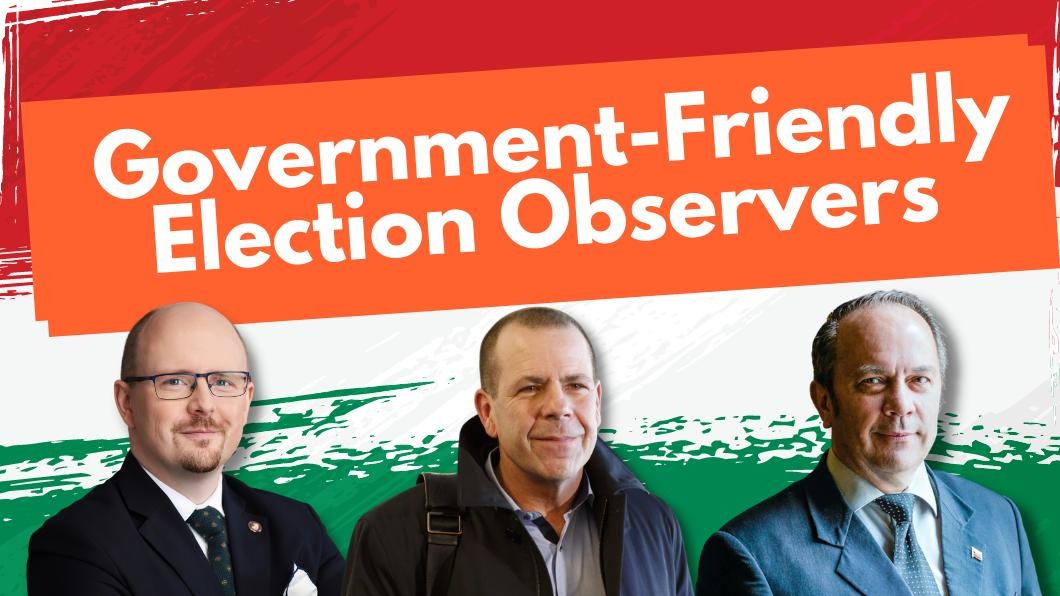

1st from left: Jerzy Kwasniewski, President and co-founder of Ordo Iuris Institute (photo: https://en.ordoiuris.pl/attorney-jerzy-kwasniewski);
2nd from left: Harald Vilimsky, Member of the European Parliament, I&D Group, FPÖ Austria (photo: https://kurier.at/politik/inland/fpoe-als-wahlbeobachter-in-ungarn/401955484);
3rd from left: Branko Grims, Member of the National Assembly of the Republic of Slovenia, Slovenian Democratic Party (photo: https://demokracija.eu/focus/video-branko-grims-tells-the-european-parliament-we-need-a-strong-europe-a-europe-of-values/).
In anticipation of the OSCE ODIHR mission’s criticism of the Hungarian parliamentary elections, the Hungarian authorities decided that they needed to counterbalance the expected OSCE’s criticism with positive assessments of the elections. To this end, and for the first time in the history of any EU Member State, Orbán’s government invited dozens of friendly politicians, journalists, and civil society activists whose aim was to endorse the elections. These friendly observers – among them members of the European Parliament and of the PACE of the Council of Europe – praised the conduct of the parliamentary elections in Hungary and made clearly political statements in support of Fidesz and Orbán.
In recent years, this practice has been institutionalised by authoritarian states such as Russia and Azerbaijan that use fake election observers to try to whitewash fraudulent elections, legitimise illegitimate plebiscites, and advance their political interests internationally. The deployment of biased election observers in Hungary was clearly aimed at discrediting one of the most trusted and influential election monitoring organisations, the OSCE ODIHR, and supported the Hungarian government’s narrative on foreign interference in the Hungarian elections.
Hungarian authorities invited two categories of friendly observers:
(1) members of political organisations and affiliated structures that have relations with the Fidesz party, including from right-wing – ranging from centre-right to far-right – parties such as
Flemish Interest (Belgium), VOX (Spain), League (Italy), Brothers of Italy (Italy), National Rally (France), Slovenian Democratic Party (Slovenia), Freedom Party of Austria (Austria), Liberal-Conservative Reformists (Germany), JA21 (Netherlands), Bulgarian National Movement (Bulgaria); and
(2) institutions close to Orbán’s government, represented largely by the Ordo Iuris Institute for Legal Culture, a Polish ultraconservative think-tank.
For more details find the full report by Anton Shekhovtsov below.
Subscribe to our
newsletter
Sign up for our monthly newsletter
and receive the latest EPDE news
Subscribe to our
newsletter
Sign up for our monthly newsletter and receive the latest EPDE news